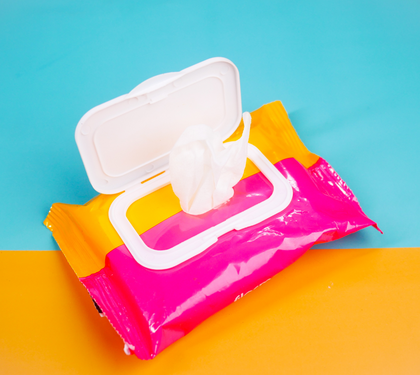As you prepare for your first year at university, excitement is likely running high. New friends, new experiences, and a fresh start await. But as you pack up your belongings and get ready for this new chapter, it’s important to consider how your choices impact the environment. The decisions you make now—what you bring, how you pack, and how you live—can set the tone for a more sustainable university experience.
Starting uni the green way doesn’t mean sacrificing comfort or convenience. It’s about making mindful choices that benefit both you and the planet. In this blog post, we’ll explore practical tips for packing and living sustainably, so you can embrace university life while reducing your environmental footprint.
1. Pack Light, Pack Smart
The first step to sustainable living is packing efficiently. Over packing leads to excess baggage, more trips back and forth, and a higher carbon footprint. When preparing for your move, think carefully about what you truly need.
Tips for Smart Packing:
- Create a List: Make a list of essentials and stick to it. Avoid bringing items “just in case.”
- Borrow or Share: If you’re moving in with roommates, coordinate on shared items like kitchen appliances to avoid duplicates.
- Opt for Multi-Purpose Items: Choose products that serve more than one function, like a lamp with built-in storage or a mattress topper that doubles as seating.
- Use Reusable Packing Materials: Instead of single-use cardboard boxes, pack your belongings in reusable containers or bags. Pillowcases, towels, and reusable shopping bags make great padding for fragile items.
2. Choose Sustainable Essentials
When it comes to daily necessities, small sustainable swaps can make a big difference. From your bathroom to your study space, opting for eco-friendly products helps reduce waste and supports a greener lifestyle.
Eco-Friendly Essentials:
- Reusable Makeup Wipes: Say goodbye to disposable makeup wipes and hello to reusable ones made from organic cotton or bamboo. They’re gentle on your skin and the environment.
- Toilet Paper Spray: Ditch wet wipes and use toilet paper spray instead. This natural alternative keeps you clean without contributing to landfill waste.
- Bamboo Toothbrushes: Traditional plastic toothbrushes take hundreds of years to decompose. Bamboo toothbrushes are biodegradable and just as effective.
- Eco-Friendly Notebooks: Choose notebooks made from recycled or sustainably sourced paper. Some brands even offer stone paper or tree-free options.
3. Sustainable Shopping Habits
You’ll likely be making plenty of trips to the store during your university years, whether for groceries, school supplies, or dorm decor. How you shop can have a significant impact on your environmental footprint.
Tips for Sustainable Shopping:
- Bring Reusable Bags: Always carry cloth shopping bags to avoid single-use plastics. Keep one in your backpack for spontaneous purchases.
- Shop Second-Hand: Thrift stores, online marketplaces, and university buy-and-sell groups are treasure troves for second-hand items. From furniture to clothing, buying used is a budget-friendly and sustainable choice.
- Buy in Bulk: For non-perishable items, buying in bulk reduces packaging waste and often saves money. Bring your own containers to refill at zero-waste stores if available.
4. Energy Efficiency in Your Dorm
Living sustainably goes beyond what you buy; it’s also about how you use resources. Being mindful of your energy consumption in your dorm room is an easy way to reduce your carbon footprint.
Energy-Saving Tips:
- Unplug Electronics: Even when turned off, electronics can draw power. Unplug chargers, laptops, and other devices when not in use.
- Use LED Bulbs: Replace any incandescent bulbs with energy-efficient LED bulbs. They use less energy and last longer.
- Layer Up: Instead of cranking up the heat, layer your clothing and use cozy blankets to stay warm.
- Natural Light: Make the most of natural daylight for studying and relaxing, reducing your need for artificial lighting.
5. Mindful Food Choices
The food you eat has a significant environmental impact. By making conscious choices about what you eat and how you source your food, you can contribute to a more sustainable world.
Tips for Sustainable Eating:
- Eat Plant-Based: Incorporating more plant-based meals into your diet reduces your carbon footprint and supports sustainable agriculture.
- Shop Local: When possible, buy produce from local farmers’ markets or choose products labeled as locally sourced. This supports the local economy and reduces the carbon emissions associated with transportation.
- Reduce Food Waste: Plan your meals to avoid overbuying and use leftovers creatively. Compost food scraps to minimize waste.
6. Get Involved in Sustainability on Campus
Universities are often hubs for sustainability initiatives, and getting involved can enhance your green living efforts while connecting you with like-minded peers.
Ways to Get Involved:
- Join a Green Group: Many universities have student organizations focused on sustainability. Joining one is a great way to stay informed and contribute to campus initiatives.
- Participate in Campus Programs: Look for recycling programs, zero-waste events, or energy-saving competitions that your university may offer.
- Advocate for Change: If you see opportunities for improvement on campus, don’t hesitate to speak up. Universities are often open to student-led sustainability projects.
Starting university is an exciting time, full of new challenges and opportunities. By making sustainable choices from the start, you’re not only reducing your environmental impact but also setting the foundation for a more mindful and conscious lifestyle. Remember, every small step counts, and the habits you develop now can lead to a lifetime of sustainable living.
So, as you embark on this new journey, embrace the chance to live green, make a positive impact, and inspire others to do the same. Here’s to a sustainable and successful university experience! 🌿🎓



